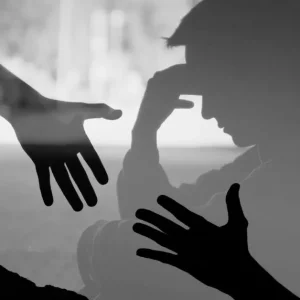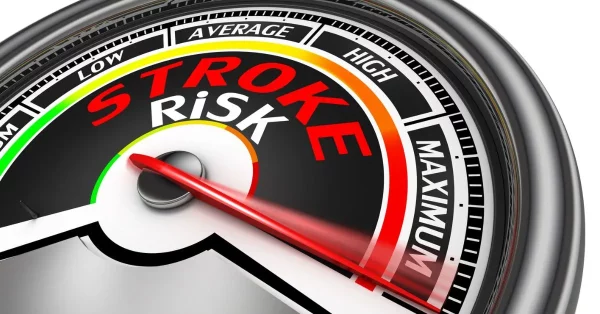Paranoia is a rare but serious complication of TBI. It causes a person to have exaggerated suspicions of the people around them, especially their loved ones. In this article, we discuss the link between TBI and paranoia, as well as what family members can do to help their loved one cope.
Causes of Paranoia after TBI
Paranoia is a symptom of psychosis, a group of thought disorders that cause a person to lose contact with reality. There are many possible causes of psychosis after brain injury. Some of these include:
- Damage to the frontal lobe or temporal lobes
- Dysregulation of dopamine.
Typically, TBI-related psychosis presents in two main forms: either the delusional type or a schizophrenia-like type. The delusions are usually paranoid in nature. Several studies report that psychosis occurs in about 4% to 8.9% of TBI patients. There is often a delay of onset between the brain injury and the presentation of psychotic symptoms.
The onset of psychosis can range from a few days to over twenty years after TBI; however, studies suggest that the majority of patients show symptoms within the first five years.
The length of time between onset and TBI depends on the type of brain injury. A delay of less than one year is associated more with diffuse axonal injuries. Longer delays are more common with damage to the temporal lobe.
Damage to the orbitofrontal cortex can also cause psychosis and paranoia.
Symptoms of Paranoia
Paranoia causes TBI patients to become unusually defensive. They may believe they are under threat even though there may be little to no evidence to support these thoughts.
Patients may also believe a specific person or group is out to sabotage them, or they believe that the people they love are lying. Many convince themselves that people gossip about them behind their backs.
To the person with paranoia, these beliefs appear completely rational, so they do not usually respond well to arguments trying to prove them wrong.
A person with paranoia may become hostile and sarcastic with those around them. If they feel threatened, they may even display aggressive behavior. This can provoke a hostile reaction in others, thus confirming the patient’s suspicions.
Other symptoms of paranoia include:
- Unforgiving and holding grudges.
- Doubting the loyalty of others.
- Detachment and social isolation.
- Defensive and argumentative behaviors.
- Trouble admitting faults.
- Hypersensitivity to criticism.
People with paranoia after TBI may also experience auditory and visual hallucinations.
Are All Suspicious Thoughts Paranoia
Everyone experiences suspicious thoughts, and sometimes these thoughts are justified. Sometimes, a person you know is lying to you or trying to hurt you. Your experience may also make you more suspicious. For example, if someone you trust hurts you, it is natural to doubt all friendships at first.
However, suspicions may become paranoia if you refuse to consider evidence to the contrary. Other signs of paranoia include:
- Basing your suspicions on feelings and ambiguities, not facts.
- No one else shares your suspicions.
- It is unlikely that someone would single you out.
- Your suspicions are damaging your relationships.
Distinguishing Paranoia from Anxiety
Although the two conditions can look very similar and can even fuel each other, anxiety and paranoia are separate issues.
The major difference between paranoia and anxiety is the person’s level of insight or self-awareness. Most anxious patients realize that they struggle with anxiety. They know they are not truly in danger, but they are unable to control their emotional reactions.
With true paranoia, the person does not believe that they are paranoid. For them, their reactions to others are perfectly reasonable. This can make treating paranoia more difficult than anxiety. However, it is not impossible.
Treating Paranoia After TBI
A comprehensive assessment from a neuropsychologist will be needed to diagnose a person with paranoia or psychosis after TBI. The psychologist may ask the patient about their work and personal relationships and how they might respond to a hypothetical situation. This may help the psychologist form a treatment plan.
Treating paranoia will involve combining medications with talk therapy. Some medications that can help treat paranoia include:
- Antipsychotics
- Benzodiazepines
- Antidepressants
A psychologist can also help the person learn how to reduce their feelings of paranoia using different cognitive therapy techniques. Treatment for paranoia may be very successful with the right therapy. Unfortunately, because paranoid patients believe their suspicions are true, it can be difficult to get them to agree to treatment.
In addition, TBI may reduce self-awareness, so the compounding effect can make it challenging for a person to understand their need for help. We do have some simple tips that can help you engage with your loved one with a TBI and paranoia.
Helping Someone with TBI and Paranoia
If you have a relative or loved one experiencing paranoia after TBI, you may have experienced uncertainty about how to respond to your loved one. At times, you may not know what to say or how to respond to your loved one’s thoughts or ideas. The following are suggestions for you in relating to your loved one:
Don’t dismiss them. Even if the person’s beliefs are unfounded, their fears and feelings are real. Try to understand what they must feel like, taking time to listen to them. Avoid arguing with them about their suspicions.
- Focus on their feelings. Maintaining the focus on their feelings may help them consider treatment as an option. Acknowledge that their stress must be exhausting, and there are people who can help them reduce and manage their stress. This may be more appealing and logical to them.
- Provide distractions. Sometimes, distractions such as a game can help the person relax and forget about their paranoia for a time. This may be helpful if they are beginning to become agitated or aggressive.
- Tell them what you are doing. Explain what you are doing before you do things. Reviewing the plans for the day or week eliminates the element of surprise that can fuel their fears. Avoid surprises that can be frightening to them. Even the arrival of an unexpected visitor or family member can be upsetting.
- It’s important to talk to the person about their fears when they are in a calm mental state. Some people find it helpful to write down all their suspicions and then write down reasons why those may not be true. This can help them see the irrational nature of their fears.
However, this activity is better suited for mild paranoia patients. Do not force a person to do this exercise when it is not appropriate. They should be interested in such an activity.
For more personalized tips on living with a person with paranoia, schedule an appointment with a mental health professional.
Understanding Paranoia After TBI
Paranoia can be a difficult side effect of TBI. It may cause extreme stress in patients and damage cherished relationships. Fortunately, with a combination of medication and therapy, it is possible to manage paranoia and promote fulfilling friendships again.









